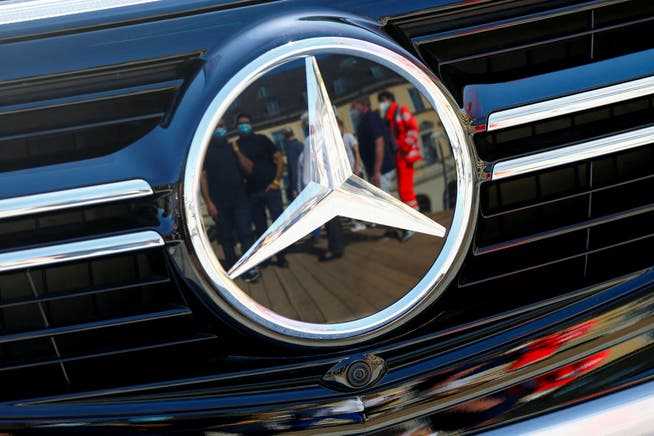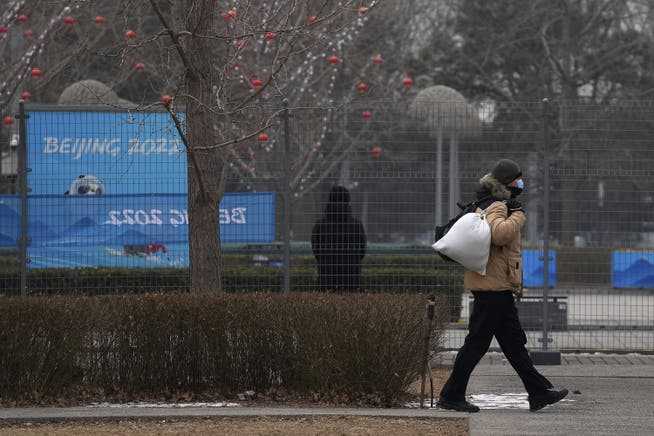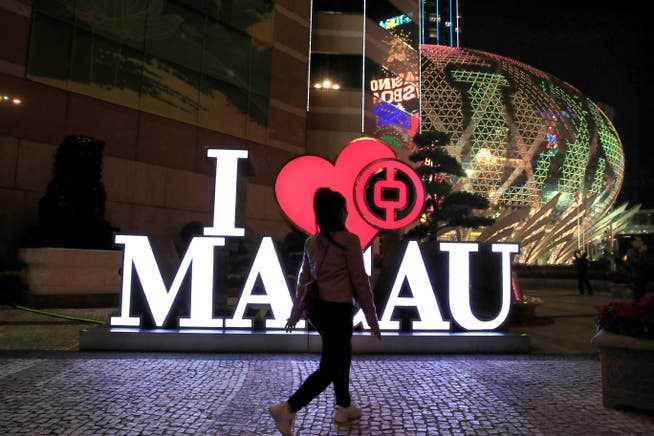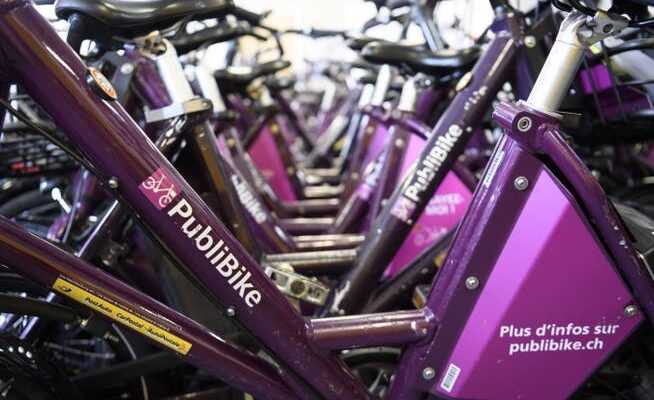Swiss Post is selling the Publibike bike rental service
Publibike boss Markus Bacher takes over the bike sharing company together with the Bernese bicycle manufacturer Thomas Binggeli and the Zurich IT pioneer Guido Honegger.
tsf. Swiss Post is selling its Publibike bike rental service. The subsidiary was founded in 2011 by the Postbus division in cooperation with SBB and Rent a Bike. As the Post announced on Monday, it has successively built up Publibike and thus done pioneering work in bike sharing. With its eight bike sharing networks, Publibike is now an integral part of the mobility offering in 35 Swiss municipalities. Further important development steps and investments in the area of digitization and infrastructure must now follow.
However, Swiss Post wants to invest the funds required for this in its own core business. You were looking for buyers who should equip the company for the future.
The new owners are the current Publibike boss Markus Bacher together with the bicycle specialist Thomas Binggeli and the IT entrepreneur Guido Honegger. The approximately 30 Publibike employees are to keep their jobs. Publibike will remain as a brand and will continue to operate the existing bike sharing networks.
Publibike operates eight bike sharing networks (Bern, Zurich, Sottoceneri, Lausanne-Morges, Nyon-La Côte, Fribourg, Sion and Sierre). Around 620 stations and more than 5,300 bicycles are available to the 190,000 customers throughout Switzerland.
Car manufacturer Daimler changes company name

The Mercedes logo at the Munich Auto Show 2021 on September 8, 2021.
(dpa)
The car manufacturer Daimler AG will officially say goodbye to its company name on Tuesday (February 1) and will then be called Mercedes-Benz Group AG. The CEO, Ola Källenius, thus completes a far-reaching corporate restructuring that began at the end of last year with the spin-off of the truck business from Daimler Truck. There have since been two separate companies, both of which are publicly traded. Mercedes-Benz is now concentrating on the car and van business.
The traditional brand with the star should be used as the company name to make the manufacturer more attractive, Källenius said last week. “We see that attention to Mercedes has increased over the past 12 to 18 months,” summed up the CEO. His declared goal is to establish Mercedes-Benz as a luxury brand. According to additional information, the name change is to be anchored in the commercial register on Tuesday.
According to experts, the Mercedes-Benz brand is very valuable. For example, last year it was valued at just under 51 billion dollars (around 47.5 billion Swiss francs) by the American consulting firm Interbrand. In the overview, only the Japanese competitor Toyota performed better among the international car manufacturers. The hit list is headed by the American companies Apple and Amazon.
Foreign correspondents in China complain about “unprecedented hurdles”

A man walks past the Beijing Winter Olympics media center January 30, which is fenced off from the public.
(dpa) Representatives of foreign media in China complain about “unprecedented hurdles” in their reporting from the country. In the annual survey by the Foreign Correspondents’ Club (FCCC), 99 percent said they felt the working conditions did not meet international standards, a statement revealed on Monday (January 31). “The FCCC is concerned about the breakneck pace at which media freedom is declining in China.”
With the Beijing Winter Olympics starting on Friday, 60 percent of the 127 survey respondents criticized the organizers for insufficient information about events beforehand. 32 percent complained that they had been excluded from events that were open to other media.
Denial of visas, surveillance, intimidation and harassment have been reported in day-to-day work. With reference to the fight against the corona virus, authorities justified delays in issuing visas, banned reporter trips or rejected interview requests. Almost half of those surveyed (46 percent) reported that their offices were understaffed because they could not bring journalists into the country.
“As a result, reporting from China suffers,” the FCCC noted. China correspondents who are not allowed to report directly from the country have settled in Taipei, Singapore, Sydney, Seoul or London. “Journalistic coverage of China is increasingly becoming an exercise in remote reporting.”
Meanwhile, correspondents in the country suffered from significant restrictions in their work. 62 percent said they had been prevented from reporting at least once by the police or other officials. 88 percent who visited the Xinjiang region in northwest China reported being persecuted. China has come under international criticism for its treatment of the Uyghur Muslim minority in Xinjiang.
More than a quarter of journalists knew that sources had been harassed, arrested or interrogated, the report said. Ninety-two percent reported refusals by interviewees, who said they needed permission from their employer or higher authority to speak to foreign media.
Australian journalist Cheng Lei, who worked for the state broadcaster CCTV, and Haze Fan, a Chinese employee of the finance agency Bloomberg, have been detained for more than a year. Concrete allegations were not mentioned – apart from vague indications that it was about state security. “The risk environment is currently changing in an unusual way,” said David Rennie of the Economist magazine.
Chinese authorities also seemed to encourage civil suits or legal action against foreign correspondents. State-supported campaigns with online attacks made the work difficult. It encourages feelings among the Chinese public that foreign media are hostile, the FCCC noted. A handful of correspondents who had been attacked in this way and their families had left the country as a precaution because of the harassment.
Macau casino operator shares plummet after CEO arrest

A typical Macau night scene – a passer-by in front of a bank branch, a hotel and a casino.
(dpa) The share price of the casino operator Macau Legend fell temporarily by more than 20 percent on Monday. Just a day earlier, the company announced the arrest of its CEO, Chan Weng Lin, in a statement to the Hong Kong Stock Exchange. According to media reports, Chan is accused of organizing illegal gambling. Before the pandemic, Macau was considered the largest gambling center in the world, ahead of Las Vegas.
But not only the lack of visitors due to the travel restrictions in the corona pandemic have hit the Chinese special administrative region of Macau economically. Since last year, the central government in Beijing has also been stepping up action against illegal capital outflows from the mainland. It’s an open secret that wealthy Chinese in Macau have used legal casinos as a loophole to illegally move their funds out of the country.
In November, authorities arrested the CEO of Suncity Group, another Macau-based gaming group.
Ita Airways sees no future without Allianz
(dpa) The managing director of the Italian airline Ita Airways sees important development opportunities in a possible alliance with the German Lufthansa. “Ita would have no future if she stayed alone,” Fabio Lazzerini told the newspaper “La Repubblica” (Sunday). “It has to be positioned in a strategic alliance with a top company, and Lufthansa is the first in Europe in terms of fleet,” said the company boss.
The successor to the insolvent traditional airline Alitalia was officially launched on October 15, 2021. Since then, Ita has been operating with a tightly timed business plan that envisages gradually increasing the workforce and fleet up to 2025. “We don’t have any more planes than we need,” Lazzerini said. He rejected the question of whether Ita would become Lufthansa’s low-cost airline: “Let’s not joke. It will be up to us and our work to show that Ita can play an important role in any alliance.”
Lufthansa and the container and cruise line MSC are aiming for a majority takeover of Itas. “For us, the main thing is to have the majority in Ita Airways,” Italian MSC founder Gianluigi Aponte recently told Corriere della Sera. The Germans could join as business partners or minority shareholders. “We want to manage the company, otherwise we wouldn’t do the action,” said Aponte.
